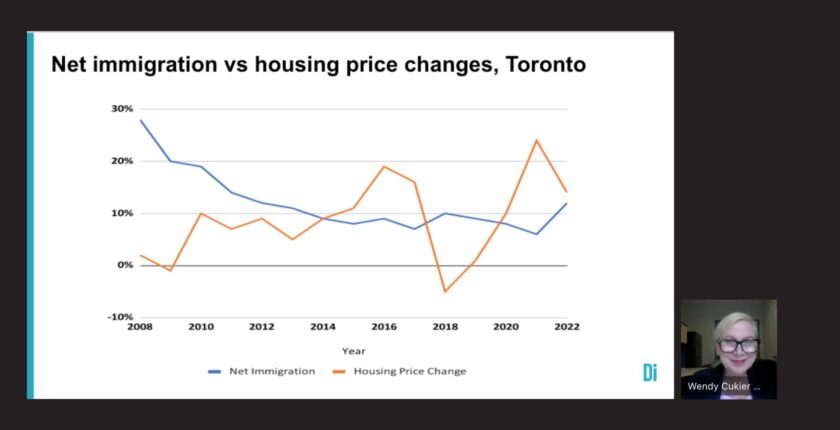Canada’s Immigration Myths: Housing Crisis and Inclusion
If you’re thinking about moving to Canada for work or to settle down, it’s essential to understand the current discussions around immigration and housing. A recent event hosted by Immigration, Refugees and Citizenship Canada (IRCC), led by Chantal Goyette, brought together experts like Wendy Cukier and Morley Gunderson to unpack these topics. Their focus? Understanding the intricate relationship between immigration and housing prices in Canada.
Do Immigrants Drive Up Housing Prices?
In their upcoming journal article, “Immigrants and House Prices: Myths and Realities,” Cukier and Gunderson address a common belief that rising housing prices are primarily due to immigration. They’ve found that while immigration does impact demand, it isn’t the main culprit driving up costs. For example, Toronto saw a significant increase in net immigration from 2005 to 2022, yet housing prices didn’t rise uniformly. Contrarily, in Vancouver, housing prices actually fell by nearly $240,000 from 2017 to 2019, despite an influx of over 50,000 new immigrants during that time.
Understanding the Real Drivers Behind Housing Costs
So what is causing housing prices to soar? Cukier highlights several barriers to housing supply, such as zoning regulations, slow permitting processes, and environmental reviews, which can slow down construction significantly. In cities like Vancouver, geographical limitations like mountains and waterways further restrict expansion. Local resistance to new developments—often known as NIMBYism (Not In My Back Yard)—also contributes to the scarcity of affordable housing options.
Shifting Perceptions Around Immigration
Interestingly, Cukier’s media analysis suggests that claims of “out of control” immigration are influencing Canadian attitudes towards newcomers. Misinformation is rampant, often fueled by social media narratives and amplified by mainstream news. As these conversations have intensified, it’s critical to remind ourselves that immigrants have played a vital role in building Canada—whether through the construction of railroads, homes, or businesses—as they continue to do so today.
What the Data Says About Immigrant Housing
Haozhen Zhang from IRCC shared insights from Statistics Canada regarding the housing circumstances of immigrants and non-permanent residents. Their research verifies Cukier and Gunderson’s findings, showing that the pandemic brought unique challenges, but immigration rates were not the primary reason for the housing price spikes during that period. The data reveals that many immigrants face significant affordability and rental pressure, highlighting the need for better housing strategies.
For international job seekers, understanding the current housing landscape is crucial, especially if you’re planning to move to Canada. As you explore job opportunities, remember that **a stable housing situation is a significant factor** in ensuring a successful transition. If you’re looking for job listings that offer visa sponsorship to support your move, you can visit our website at VisaJobsCanada.com. Every listing provides important details about visa support to help make your journey smoother.
What do you think?
Have a question about this topic or your own plans to move to Canada? Scroll down and leave a comment. We’d love to hear from you.

